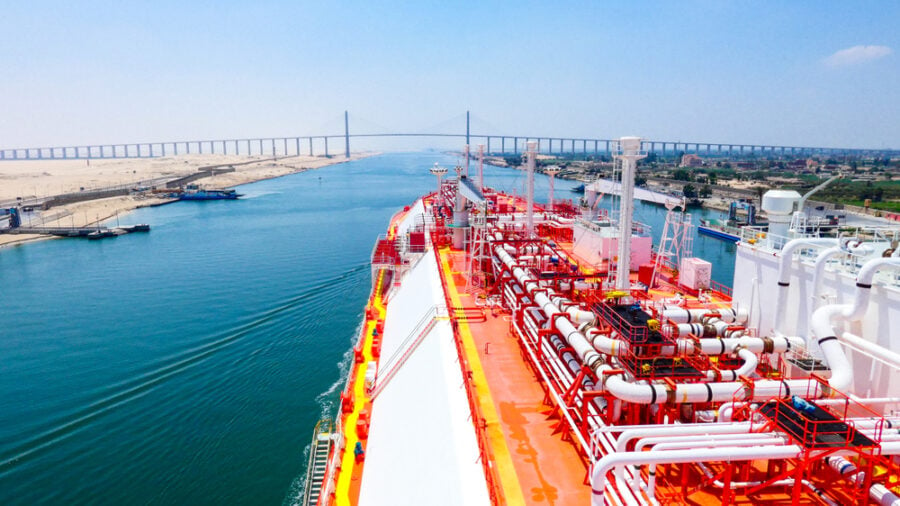It is true that the Russian-Ukrainian war negatively affected Egypt and its economy, but the Suez Canal benefitted greatly, and which deviated from the global trend. It achieved the largest returns in its history on a monthly basis as a result of the influx of Western ships that pass through it in search of oil and its derivatives.
The Suez Canal is one of the world’s busiest shipping lanes, with about 13 percent of global trade flowing through it, representing 30 percent of international container traffic.
And every year, more than a trillion dollars in merchandise passes through the canal.
In the latest figures, the Suez Canal achieved the highest monthly revenues ever in April, reaching $629 million, according to what was announced by the head of the Suez Canal Authority Osama Rabie. He added that the channel’s revenues in April increased by 13.6 percent compared to the same month last year, when it peaked at $553.6 million.
Navigation in the canal witnessed the crossing of 1,929 ships in April 2022, compared to 1,814 ships in April 2021, a difference of 115 ships and an increase of 6.3 percent. Also, 114.5 million net tons were transported through the canal – the largest monthly tonnage in the canal’s history.
The Suez Canal Authority notic–d a significant increase in the number of different types of ships transiting the canal compared to the same month last year. Oil tankers increased by 25.8 percent, container ships by 9 percent, and LNG carriers by 12 percent.
The Suez Canal Authority had announced that it would raise transit fees for a number of categories of ships, starting from the first day of May.
The war caused a change in the crude oil trade
In a statement to the American newspaper, Al-Monitor, Rabie said, “The Russian-Ukrainian war caused a change in the crude oil trade, which led to an increase in oil tankers transiting the canal.”
“As a result of reducing imports from Russia, northbound trade increased as a result of higher European and Canadian imports from the Persian Gulf. Meanwhile, southward movement of oil increased due to Russia’s tendency to export oil to Asia, away from Europe,” he added.
Regarding LNG, Rabie said, “More gas is now passing through the Suez Canal, heading north from the Persian Gulf region to Europe.”
“This trend is likely to continue, as LNG carriers destined for Russia, the United States and North Africa to Asian countries have seen a relative increase,” he added.
Rabie emphasized that the war also led to an increase in the shipment of dry bulk goods from Asia and Australia to Europe – especially coal, iron and steel – due to a lack of imports from Russia and Ukraine.
The crisis in Ukraine is not the only factor contributing to the channel’s increase in revenues. There is also an increase in transit fees of 6 percent which started in February 2022 in addition to additional fees for transiting ships, excluding cruise ships, in March and again in May, Rabie says.
He expects revenue from these additional fees to exceed $500 million annually.
According to the latest data published by the Central Bank of Egypt, Egypt earned $88.3 billion in foreign exchange from five sources in 2021: The Suez Canal, remittances of Egyptian workers abroad, exports, tourism, and foreign direct investment. The waterway generated $6.4 billion, representing 7.1 percent of total revenues.








